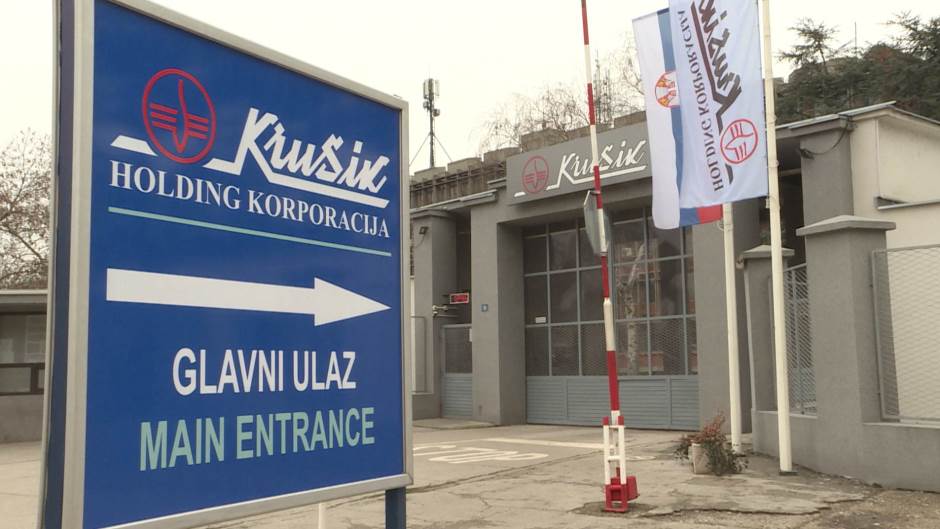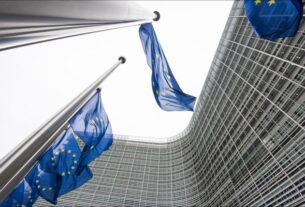European Commission’s report on Serbia, which was published on 12 October, referenced directly the corruption scandals Krušik for the first time. In the previous reports, the Commission limited itself to some general guidelines only, while this case was mentioned by name only in the reports of the European Parliament.
Due to the current geopolitical situation, where the Serbian Government is still trying to sit on two, or even three chairs, European Commission report was more critical this year than ever before.
However, the aforementioned scandal – Krušik, became a symbol of institutional neglect of the whistleblowers. More than three years after the affair, Aleksandar Obradović, a whistleblower from Krušik is still “fighting windmills” with the Serbian judicial system.
Furthermore, when writing about the whistleblowers, the Commission mentioned that around 99 new subjects regarding the Whistleblower protection law appeared before Serbian judges in 2021. Also, the report stated that a lot of the previous cases haven’t been solved for years.
The European Commission highlighted the need for strengthening the position and protection of whistleblowers, as well as the importance of solving high corruption cases. Exactly the whistle-blowers played a key role in exposing most of those cases. Unfortunately, the number of solved cases has never been revealed to the public.
Despite the constant urges, not only by the European Commission or European Parliament but also from GRECO and some other relevant international organizations dealing with this issue, it seems that the Serbian system remains deaf. No steps forward have been taken so far.
In the Serbian legal framework, the main legal act dealing with this institution is the Whistleblower protection law, adopted in 2014.
Program Director of Transparency Serbia Nemanja Nenadić explains for EWB that the abovementioned law is providing whistleblowers with “relatively good protection” in some situations, like “the possibility of adopting a temporary measure in court proceedings”, for example, when the whistleblower is fired.
However, the interlocutor stated that protection is lower when it comes to hidden threats or some form of revenge of employers against whistleblowers or their family members.
On the other hand, there are situations where protection is even worse – when the whistleblower doesn’t explicitly work for the institution he reported, or if the whistleblower is a legal entity suffering consequences due to the breaking of the law, then the practice depends from judge to judge. Sometimes, different judges are differently interpreting the law.
Differences between theory and practice
The Krušik case laid bare the weaknesses of the position of whistleblowers in the current system in practice. The reason: the absence of strong institutions to implement the law. Instead of being protected for the act of bravery and an attempt to stop high corruption in one of the biggest military factories, whistleblower Aleksandar Obradović was arrested, interrogated, and then held in home custody in 2019.
Instead of indicting the people pointed out by Obradović, the authorities were trying to undermine him, to find some “hidden” motives in his act, and to present him as the one who should be sitting on the court bench.
Nemanja Nenadić thinks that deficiencies are both in the legal framework and in practice. Concretely, in the Krušik case, the whistleblower went public and exposed documents that were, for some unexplained reason, treated as confidential. Our interlocutor explained that the law is protecting whistleblowers from potential revenge, but that is pretty insufficient when it comes to the cases where the whistleblowers need to break the rules in order to draw attention to the corruption case.
On the other hand, former and the first Commissioner for information of public importance Rodoljub Šabić stated for EWB that the “position of whistleblowers in Serbia has never been good”, describing the adopted law on their protection as a missed chance.
However, according to him, the law itself is not that bad. “The authorities are guilty for not implementing it”, explained Šabić, adding that “the bad attitude towards whistleblowers is unfortunately quite consistent and correlated with the trend of growing corruption in our society”.
Certain procedures for reporting irregularities exist indeed, but before going out to the public, Aleksandar Obradović warned his superiors who did not react. Even if something is treated as confidential, the ongoing corruption as well as the public interest, especially in such a delicate company as Krušik, demand urgent measures by the whistleblower. That’s one of the reasons why the existing law should be partially changed and adapted to real situations.
The importance of the whistleblowers
There is a huge potential in the role of whistleblowers in exposing corruption cases. The accent is always on high corruption, but even petty corruption cases can be more quickly and effectively solved with the help of whistleblowers.
However, their contribution depends on many circumstances and conditions. “To what extent will they be encouraged to step forward, how effective are the channels of communication, and how fast would the institutions react, these are some of the most important things”, concluded the Program Director of Transparency Serbia.
The First Commissioner for information of public importance said that “year after year, Serbia has been ranked worse and worse on the Corruption Perceptions Index, and last year it ended with the lowest score and ranking in the previous decade. The further continuation of this trend would also influence the position of whistleblowers. Unfortunately, not positively.”
It is unknown how many potential whistleblowers are right now out there, asking themselves whether they should report the corruption and risk everything. As long as the institutions remain passive, trust in the system is broken, and the public is deprived of knowledge about what happened with other whistleblower cases, for most of them the decision would probably be to remain silent.
This article was published as part of the project “Civil society for good governance and anti-corruption in southeast Europe: Capacity building for monitoring, advocacy and awareness-raising (SELDI)” funded by the European Union.
The post Whistleblowers in Serbia: High profile cases, but no support of the institutions appeared first on European Western Balkans.





